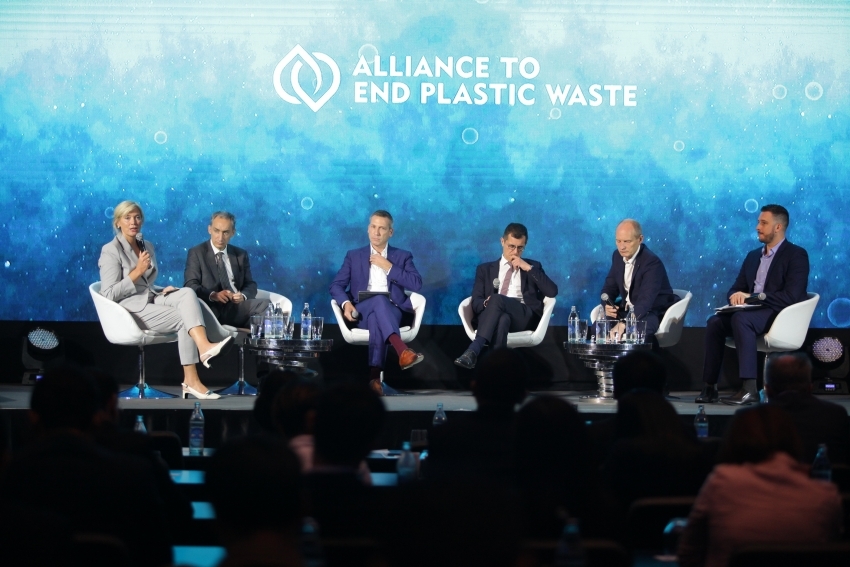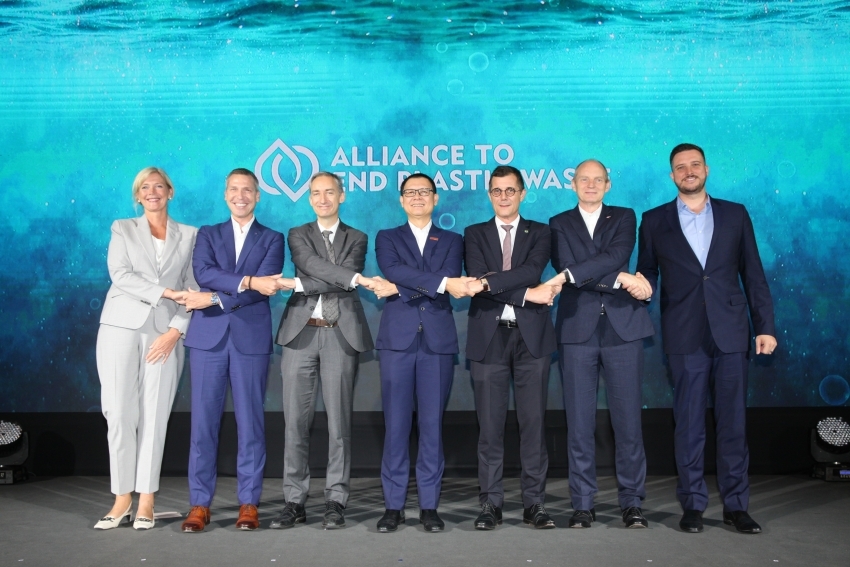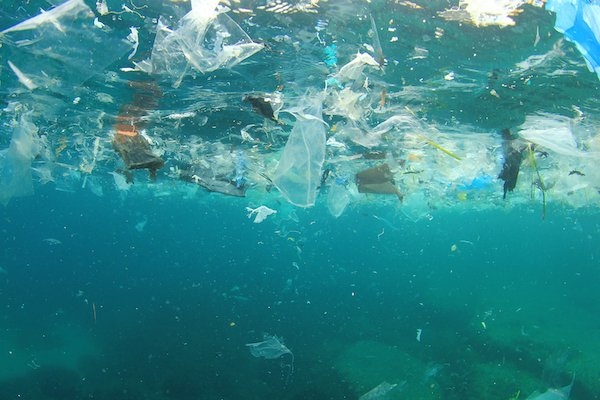"Every year, more than 8 million tons of plastic ends up in the ocean," said Ocean Conservancy, a Washington D.C.-based non-profit environmental organization in 2017. The figure is consistent a report of the International Union for Conservation of Nature (IUCN), which indicates that 80% of all plastic waste generated each year ends up in the ocean.
The problem has noticeably intensified over the past year as the media has consistently villainized plastic waste as the culprit that harms nature and animals, leading to the enforcement of a single-use plastic ban in many countries. In Thailand, from January 1st, 2020, wholesalers, retailers, as well as 43 brands of convenience stores have completely stopped giving away plastic bags to customers.
SCG realizes the gravity of this problem and has, therefore, joined as a founding member and supporter of the Alliance To End Plastic Waste (AEPW), a non-profit organization that unites global companies in the plastics value chain to effectively and sustainably enhance solutions to the environmental plastic waste problem, especially in seas and oceans.
Together, we can go far.
The Alliance To End Plastic Waste (AEPW) is the only non-profit organization in the world with memberships comprising companies that manufacture, use, sell, process, store, and recycle plastics, encompassing all touchpoints in the plastics industry's value chain. Since its inception on January 16, 2019, it now has 45 members and is headquartered in Singapore, with branch offices in many regions including North America, South America, Europe, Africa, and the Middle East. The Alliance has partnered with the World Business Council for Sustainable Development (WBCSD) as a founding partner and strategic planner.
In Thailand, SCG serves as a major force that drives the Alliance To End Plastic Waste (AEPW)’s operations in Southeast Asia, a region faced with a plastic waste crisis. The Alliance was launched in August, and at the event, discussions were held to brainstorm ideas on waste management challenges in Thailand and its region from the founding member companies, government agencies, and non-profit organizations. The event also included the recruitment of companies in the region to join the organization to help solve the plastic waste problem in tangible ways.
A world-class organization with a clear philosophy
The philosophy that supports the Alliance To End Plastic Waste (AEPW)'s success in tackling the environmental plastic waste problem consists of 10 key mantras:
- See common problems: From reliable data gathered from the world's leading authorities, along with UN certification, plastic waste, especially single-use plastics, is one of the major problems that countries around the world have to work together to solve because it is a threat to the environment and human society.
- Think global, act local: Even if it is a matter that requires international cooperation, solving the problem requires specific solutions – project design and implementation methods that are contextualized for each area. This pertains to various levels, from regional, national, area and community levels.
- Better together: In the past, there were a lot of projects focusing on plastic waste management. However, most of them had relatively low operational efficiency because they lacked integration with all units in the value chain.
- Change to adjust: Projects supported by the Alliance To End Plastic Waste (AEPW) focus on promoting and encouraging behavioral change through convenient access to plastic waste disposal.
- Value is key: Single-use plastic is still a valuable material. Putting plastic waste back into sorting and recycling processes is the catalyst that drives a sustainable value chain.
- A good supporter of the state: Many governments are seeking solutions to the problem of plastic waste. However, operations can be delayed due to lack of flexibility. The Alliance To End Plastic Waste (AEPW) experts help pass on knowledge and best practices to government agencies, so that they can be efficiently applied at the community level.
- Join the frontline: The collaboration of all units in the various value chains under the Alliance To End Plastic Waste (AEPW) will progress efficiently and produce tangible results because of the expertise that comes from each member company.
- Full steam ahead: Designing solutions to address specific waste issues allows corporate projects to gain success quickly. This makes it possible to effectively scale up the results.
- The starting point is design: From projects that reduce material consumption to design for efficient recycling and innovations in waste management, all relevant components are based on the concept of design that revolves around the circular economy.
- Ideas for novelty: The Alliance To End Plastic Waste (AEPW) believes that tackling environmental plastic waste problems will have a direct impact on many companies’ business models. However, at the same time, it will create new business models that are yet to be explored by many companies and can ultimately be made compatible with the United Nations’ principles of sustainable development.
Fighting plastic waste with tactics
With SCG as one of the co-founding companies and significant supporters in Southeast Asia, the Alliance To End Plastic Waste (AEPW) executes various projects systematically and places emphasis on action-based projects, with operational processes based on four key components:
- Infrastructure: Improving existing infrastructure and building a strong infrastructure system that can support all stages of the plastic life cycle, from collection to sorting and repurposing or recycling plastics to use again.
- Innovation: Supporting and accelerating the development of new innovations that are crucial to the waste management process. Innovation is so important and is still quite scarce in many regions due to the fact that it requires an investment that carries risks and requires a high financial commitment.
- Education and Engagement: Promoting understanding and participation and enhancing knowledge and understanding of responsible use and disposal of plastics, which will allow individuals to understand the problem and understand how to solve it effectively.
- Clean-up: Restoration of affected areas is part of the process. Readiness to take action and deal with problems without delay is key to the possibility of future success.
As a result of these operational strategies, the organization hopes to reduce the amount of plastic waste that will leak into water supplies and end up in oceans and seas by 3 million tons, as well as build at least three model waste-free cities through funding of nearly USD 1 billion from member companies. The organization has set an investment target of USD 1.5 billion for the next five years.
Currently, there are over 400 plastic waste management project ideas under consideration by the Alliance To End Plastic Waste (AEPW), with four having been approved and granted a budget for implementation. The main ones are Plug & Play, Renew Oceans, Project Stop – Jembrana, and Grameen Creative Lab. The details of these projects, along with additional information, can be found at https://endplasticwaste.org/







